
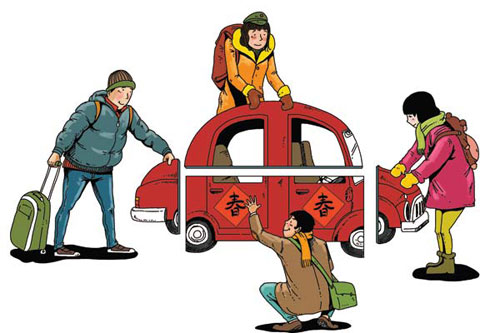 |
Flying home
Airports in China will also see their busiest-ever traffic during this year's travel peak.
Nearly 8.8 million trips will be made through the Beijing Capital International Airport, averaging 220,000 each day, a 4.86 percent year-on-year increase, according to airport authority.
Airport workers with tablet computers and printers have been sent to help passengers check in. The practice is proving successful in saving travelers' time and reducing pressure on counters, the airport said.
Travelers to regions that produce many migrant workers and tourist hot spots have more options during the 40-day peak period.
Air China has pledged to add 2,578 flights to major Chinese destinations during the travel peak, and China Southern Airline plans to add more than 5,400 flights.
Carpooling a new trend
In addition to traditional ways of going home, Chinese people have increasingly turned to a comparatively new idea — carpooling.
Yue Hanshi, 52, decided like many others to return home with some new friends who would share expenses in his car.
Yue, who works at a property management company in Guangzhou, Guangdong, said it would be his first time giving others a lift on the way back to his hometown — Jingmen, Hubei province.
"My company said our holiday starts on Feb 7, a bit later than other enterprises, which created problems for me. It was very hard to get a train ticket for that time, and flying is too expensive for me," he said.
"I considered driving back home by myself, but the cost of gasoline and the road tolls made me hesitate," he said. "Then some of my young colleagues suggested I could take some people with me who are going to the same area. I thought it was an interesting idea, and my passengers can share the costs."
He advertised for companions on the Internet and asked anyone who fit his requirements and was interested to give him a call.
"If they call me, I'll be able to verify through their accents that they are from my hometown or nearby. I don't want to take people who will add extra distance to my route because it will take more time and bring unnecessary errands."
Yue also required the passengers to provide their ID cards and pay him 200 yuan each. "I have strict standards about who I take because I don't want my trip ruined by troublemakers," he said.
"And I won't let them drive my Chevrolet because I'm more familiar with my car and can guarantee our safety."
Yue was not alone in sharing cars.
"I have an SUV and plan to drive it home from Chongqing to Zhuzhou (Hunan province). I plan to leave on Feb 8 and take highways for the whole trip," Guo Long, a construction engineer from Zhuzhou who works in Chongqing, wrote on a carpooling website.
"Besides my wife and me, there are extra three seats in my car, so I'm looking for three passengers. Women are preferred, and those who are interested should be healthy and non-smokers. Ideal passengers would have a driver's license."
Guo said he thought it is impossible to buy train tickets for his wife and himself, and air tickets, though easier to find, are too expensive, so driving home seems a reasonable option.
He calculated the cost of each means of transportation.
"A hard sleeper ticket from Chongqing to Zhuzhou costs 248 yuan, an air ticket around 900 yuan. The road distance between the two is 1,100 km, which means gasoline will cost 900 yuan and the highway toll will come to nearly 500 yuan.
"If I can find three passengers, the cost per person will be 280 yuan, which is about the price of a hard sleeper ticket."
Since the beginning of January, ride-sharing information has surged on several marketplace websites, including 58.com and picker365.com.
Wang Yi, product director of the carpooling service at 58.com, a popular website for information sharing and item exchange, said more than 30,000 posts about car sharing were posted every day since January, almost 30 percent more than usual.
Nearly 1 million people would view those posts per day before the festival, he said.
A survey by 58.com found that nearly 50 percent of netizens who sought co-travelers found companions on the website.
Netizens began flooding the website searching for carpooling information in early January, Wang said, adding that his subordinates were busy editing information based on netizens' places of departure and destinations.
"We encourage those who seek car owners to submit their ID information and cellphone numbers on our website, but it's not obligatory," Wang said. "However, the more information you provide, the more replies you can get and easier it is to find companions."
In addition to the information database, the website also provides a sample of safety contract for passengers and drivers, he said.
"We encourage every passenger to sign the contract online, and tell their families about car owners' information, because this can help ensure passengers' safety and help the their families to know their routes," he added.
Since 2008, carpooling has become an increasingly popular choice among Chinese people returning home during Spring Festival, according to Wang.
Car sharing can make full use of the transport resources and alleviate traffic during Spring Festival. In addition, it is affordable for most people and provides them a chance to make friends, he said.
There are no set, unified price standards for sharing a vehicle, Wang said.
Xue Junying, chief executive officer of picker365.com, a website specializing in the carpooling that opened in 2010, said the website is designing carpooling application software for cellphone users.
Information about carpooling is available on the Internet, but this brings inconvenience to those who are unable to access the Internet but want to seek a car to share. Therefore Xue's engineers are conducting research for an app for smartphones to help travelers find shared cars at any place and any time, Xue said.
"Our website is just a bridge between car owners and passengers, so we do not intervene with their deals," he said, adding they will popularize an online insurance this year, aiming to help users to enjoy a safer and more assured journey.
He added that there is a remarkable surge in information of the carpooling as national holidays such as the Spring Festival and National Day approach, and it is becoming a feasible and affordable way for young people, especially migrant workers, to travel or return home.


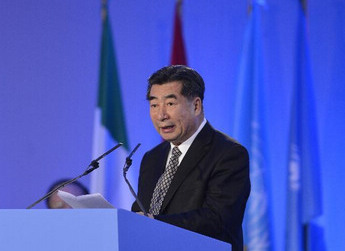

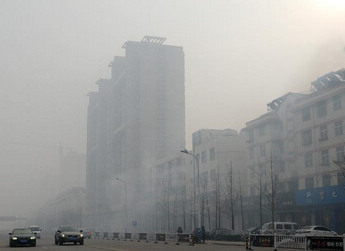

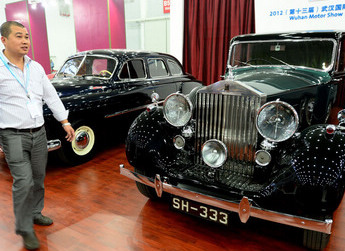
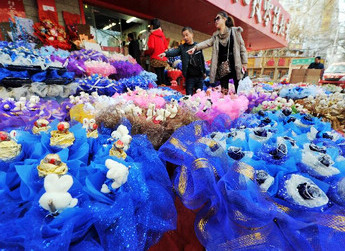

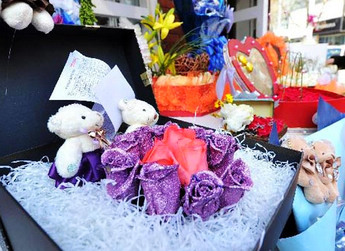







 Young Spanish scientist has a career 'made in China'
Young Spanish scientist has a career 'made in China'


![]()
